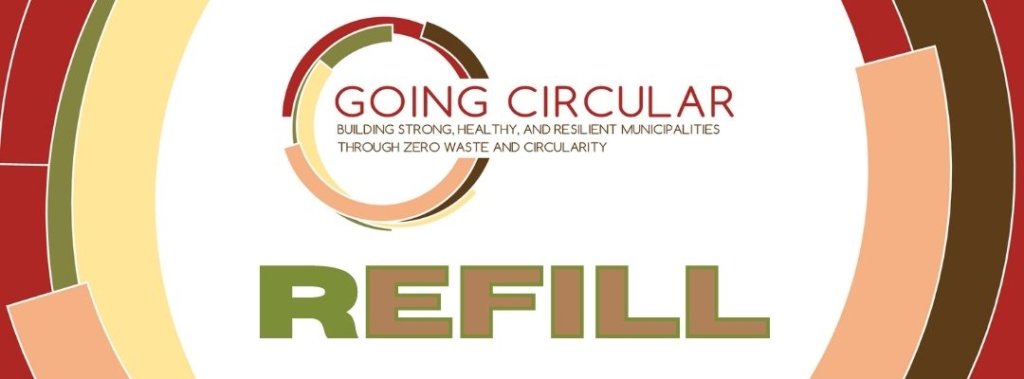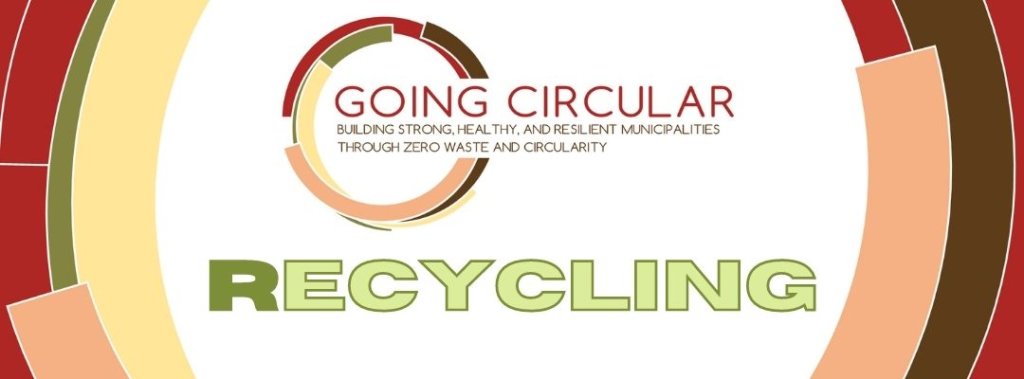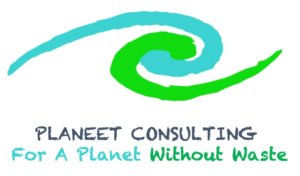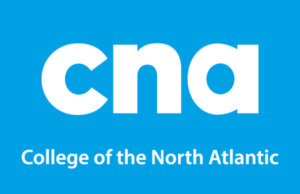Going Circular in Portugal Cove-St. Philip’s
The Town of Portugal Cove – St. Philip’s (PCSP), College of North Atlantic (CNA), and Planeet (Zero Waste) Consulting have come together to carry out the project “Building Strong, Healthy, and Resilient Municipalities Through Zero Waste and Circularity.”
The project’s goal is to learn about “Circular Services” that already exist in PCSP, what the community would like to see in the future, and its recommendations to make that happen.
Survey
Take our survey below or click here to visit our survey website.
Circularity Overview
What is a Circular Service?
Any “R” service like Repair, Reuse, Refill, Recycling, Return, and Rot (composting) that helps prevent and reduce waste, connects people, and moves PCSP towards Circularity. Scroll down to learn more about the “R” Services and how you can join in!
Why is Circularity essential?
Because it will help the municipality keep materials in use and the loop as long as it can. The Town will reduce pollution, waste (and costs associated with it), and create new business opportunities that support skills development, jobs, and human connections.
Circularity also contributes to climate action; something to which PCSP is already committed. When materials are kept in use for as long as possible, there is a reduction in the carbon emissions associated with the extraction, production, transportation, and disposal of new things.
A Steering Committee – Municipalities NL, PCSP Chamber of Commerce, the Advisory Committee on the Environment (ACE), the Town of PCSP, CNA, and Planeet – will support the execution of the project and champion the move towards Circularity.
We Want to Hear from You
If you know of or have used any of these “R” services or are involved in any way as an individual (at home or workplace), school, business, or community organization in PCSP, we ask if you could please complete the following short survey
If you have any additional questions or comments on this initiative please email Viviana at [email protected].
The “R” Services
Repair:
Getting clothes, electronics, furniture, etc., repaired by someone else for free or for a fee. Not doing it yourself.
Repair removes difficult-to-recycle, multi-material, and bulky items (bicycles, furniture, clothing, large household appliances, and computers) from the waste stream by redirecting them from landfills to repair shops and thrift stores. A recent study looking at 16 countries found that the repair sector has the potential to create 404 jobs/10,000 tonnes per year, on average, compared to 2 jobs in landfills! What repair opportunities can we find in PCSP? What would be the challenges?
Learn more here – Zero Waste and Economic Recovery: The Job Creation Potential of Zero Waste Solutions. 2021. Global Alliance for Incinerator Alternatives. https://zerowasteworld.org/wp-content/uploads/Jobs-Report-ENGLISH-2.pdf
Reuse:
Participating in clothing swaps, buying in second-hand clothing stores, becoming a member of a tool library, upcycling (refashioning a piece of cloth, furniture, food packaging), etc. Not doing it yourself. Reuse also includes deconstructing (taking apart unwanted buildings for their salvage value, rather than demolishing them without regard to the value of their component parts).
In Canada, the volume of construction waste sent to landfills is 3,4 million tonnes/year. “Adaptive reuse” encourages the repurposing of the building’s basic structure and the reuse or recycling of the build materials removed from site, can generate more jobs than demolition and new construction. However, it can also cause job loss in other parts of the value chain (raw material extraction and manufacturing). What reuse opportunities can we find in PCSP? What would be the challenges?
Learn more here – Waste Prevention: The Environmental and Economic Benefits for Canada. NATIONAL ZERO WASTE COUNCIL MARCH 2021 http://www.nzwc.ca/Documents/NZWC-WastePreventionReport.pdf
Refill:
Bringing your own containers for refills at coffee shops, food or health stores, etc.
 Refilling your own containers reduces waste, eliminates energy needed to produce new packaging and can save you money!
Refilling your own containers reduces waste, eliminates energy needed to produce new packaging and can save you money!
Did you know? Approximately 40% of the plastic produced each year is packaging, used once and thrown away. How do you avoid packaging when visiting stores or coffee shops in PCSP?
Learn more here – Sicence.org: Production, use, and fate of all plastics ever made
Recycling:
Getting paper, plastic, electronics, or clothing, etc., recycled by private or public organizations.
 Recycling can greatly reduce the amount of waste sent to landfills and eliminate energy needed to manufacture new material from scratch.
Recycling can greatly reduce the amount of waste sent to landfills and eliminate energy needed to manufacture new material from scratch.
It’s estimated that less than 11% of plastics are recycled in Canada. What recycling programs do you participate in PCSP e.g. electronics, metal, beverage containers, curbside? What would you like to see in PCSP?
Learn more here – Moving Canada toward zero plastic waste: Closed consultation
Return:
Bringing back packaging, bottles, or bags, etc., to the stores where you bought the products.
 You may be surprised to hear: Canadians generate 3.25 million tonnes, or 140,000 garbage trucks full, of plastic waste annually. Only 9% of plastic waste in Canada is recycled. Much of this plastic waste comes from grocery packaging.
You may be surprised to hear: Canadians generate 3.25 million tonnes, or 140,000 garbage trucks full, of plastic waste annually. Only 9% of plastic waste in Canada is recycled. Much of this plastic waste comes from grocery packaging.
Would you like to see other options for grocery packaging than those currently available? Would you be willing to use returnable containers?
Learn more here – Greenpeace launches Plastic-Free Future Action Toolkit
Rot:
Rot or composting organics by a business or community service. Not in your backyard.
 30% of the waste generated in Newfoundland consists of organic material. Composting this material instead of sending it to the landfill allows it to decompose in the presence of oxygen, which means the harmful greenhouse gas methane is not released. Composting can be economically beneficial as well. In countries where bio-waste recycling is well established, composting is the first choice for dealing with this material. Increasing bio-waste recycling infrastructure also helps generate jobs.
30% of the waste generated in Newfoundland consists of organic material. Composting this material instead of sending it to the landfill allows it to decompose in the presence of oxygen, which means the harmful greenhouse gas methane is not released. Composting can be economically beneficial as well. In countries where bio-waste recycling is well established, composting is the first choice for dealing with this material. Increasing bio-waste recycling infrastructure also helps generate jobs.
How do you reduce organic waste? Do you compost or do you have other strategies for reducing household organic waste? Would you be interested in participating in a composting program?
Learn more here – Turn Back the Tide | Composting at Home
Our Partners
Planeet Consulting
Planeet is the first zero-waste consulting firm in Newfoundland and Labrador. Our Vision is a waste-free and just world for present and future generations. Our Mission is to support organizations, communities, and businesses to further Zero Waste and pave the way towards a sustainable and resilient society and planet.

CNA & its Office of Applied Research and Innovation
CNA is the largest post-secondary educational and technical skills training centre in Atlantic Canada; enrolling learners each year in more than 100 full-time programs across five schools: Academics, Applied Arts, and Tourism; Business and Information Technology; Engineering Technology; Health Sciences; and Natural Resources and Industrial Trades. CNA has multiple campuses and delivers programs and services to students in Newfoundland and Labrador (NL) and across the globe. The college’s Office of Applied Research and Innovation is dedicated to supporting local industry and community partners throughout NL and is focused on solving real-world problems that impede the development and growth of our industries and communities.

Climate Change
Learn more about Climate Change in Portugal Cove-St. Philip’s, here:


